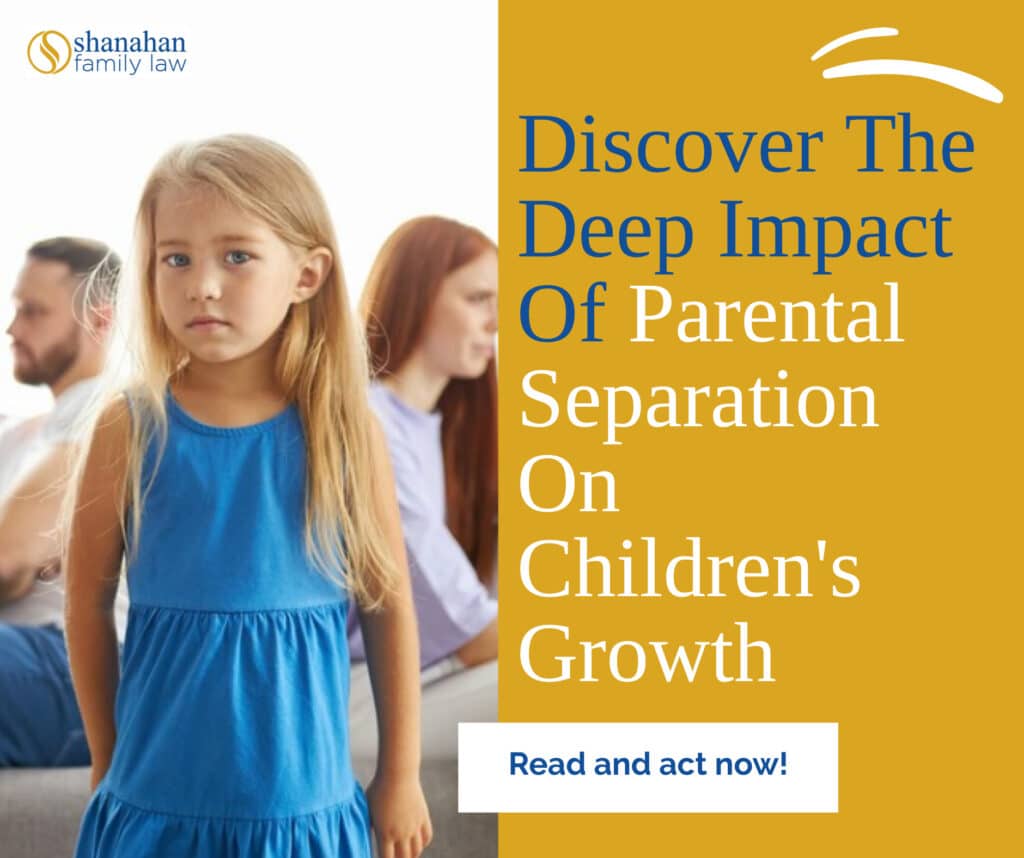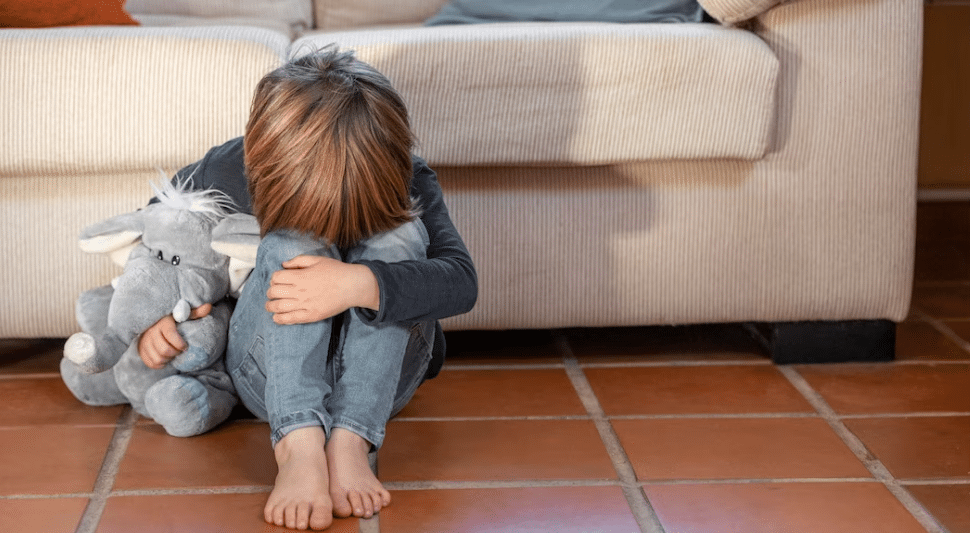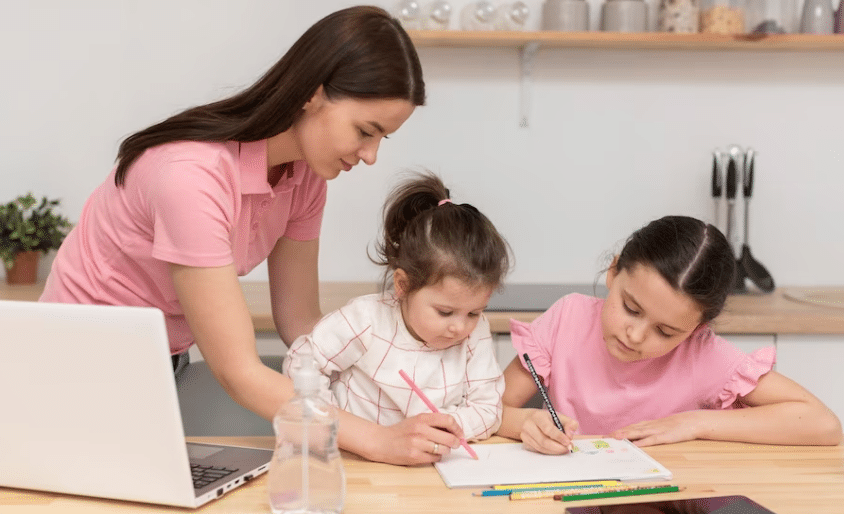Separation and divorce are challenging events in the lives of parents and children. They change the dynamics of a family, and the ripple effects can be felt for years. This article delves into the profound impact of parental separation on children, which concerns various factors, from their mental health to their academic performance.
Key takeaways 
- Separation and divorce significantly alter family dynamics. This leads to feelings of instability and strained parent-child relationships.
- Children from divorced families face a higher risk of mental health problems. This includes depression, anxiety, and substance abuse.
- Separation anxiety affects children of all ages. It manifests as fears of the unknown and regressive behaviours.
- Parental separation can negatively impact a child’s academic performance and social relationships. This causes feelings of isolation.
- Parent education programs and professional mental health support are vital. They help children navigate the challenges of parental separation.
The shift in family dynamics after parental separation
When parents divorce, the family structure undergoes a significant transformation. The once intact families may split into two households. Children often find themselves navigating between them. This can lead to feelings of instability and insecurity.
The parent-child relationship can be strained, especially with ongoing parental conflict. Moreover, the home environment might change. One parent becomes the primary caregiver, altering the child’s relationship with both parents.
Consequences on a Child’s mental health
Children from divorced families are at a higher risk of mental health problems. The trauma of seeing parents separate can lead to depressive symptoms. These symptoms can include anxiety and even substance abuse in young adulthood. Many children also show signs of separation anxiety. This is a condition where a child becomes overly worried about separation from their caregivers.
Family violence is also a concern in some separated households. This further jeopardises child health and early childhood development. The stress of parental divorce can lead to antisocial behaviour. In extreme cases, some young people might even attempt self-harm.
Separation Anxiety and Its Effects
Separation anxiety is not just about the fear of being away from divorced parents. It’s a manifestation of the child’s fear of the unknown. Fear of what their life will look like without both parents together. This anxiety can affect children of different ages, from toddlers to teenagers. They might become clingy, have nightmares, or even regress in behaviours like bedwetting.

Educational and Social Outcomes
The impact of parents’ separation on children’s academic performance is significant. Many children struggle to concentrate in school, leading to a grade drop. In-home stress challenges a child’s ability to engage in extracurricular activities. This affects their chances of having friendships.
Children from divorced families might also face challenges in their social lives. They might feel isolated. They may think other children from intact families can’t understand their pain. This feeling of being ‘different’ can hinder their social development. This leads to issues like low self-esteem.
The Role of Parent Education Programs
Parent education programs play a crucial role in helping separated parents transition. These programs equip parents with the skills to ensure their children cope effectively. Learning to resolve conflict and make informed decisions helps parents stabilise their children’s environment. Parenting plans, for instance, can provide a clear decision-making roadmap. This can ensure the child’s well-being is always prioritised.
Seeking Professional Help
Parents and children need to seek professional help when needed. Mental health professionals, including therapists and counsellors, can provide support to navigate separation. They can offer strategies to help children adjust and ensure positive mental health outcomes.

Conclusion
With their parents divorced, children may suffer profoundly. Every aspect of their lives can be affected, from their mental health to their education. However, children can successfully navigate these challenges with the proper support and tools. Parents, educators, and professionals must work together. This ensures that children have the resources to thrive, even during family transitions.
Shanahan Family Law has many years of experience working with parents. We can help you navigate separation effectively. Want to set up a free discovery call? Call our office today.
The above information is intended to be general advice only and is not a substitute for personalised advice. Because it does not consider your individual circumstances, it is not intended to be relied upon, and any loss or damage arising from any such reliance is disclaimed. Any financial or legal decisions should only occur after you have received tailored advice from a legal or financial professional.

